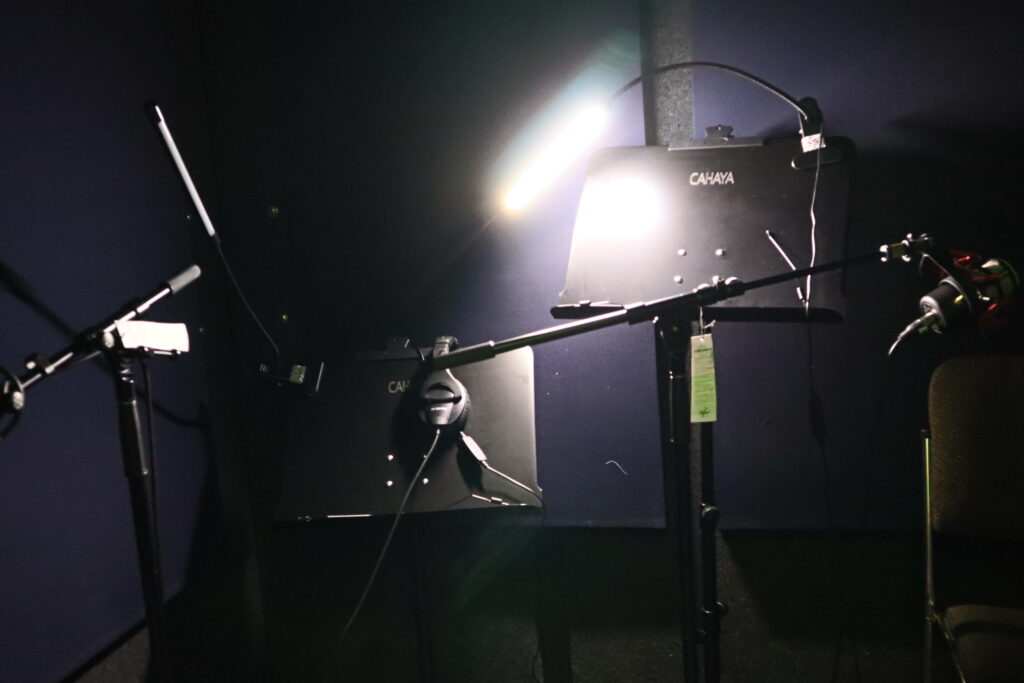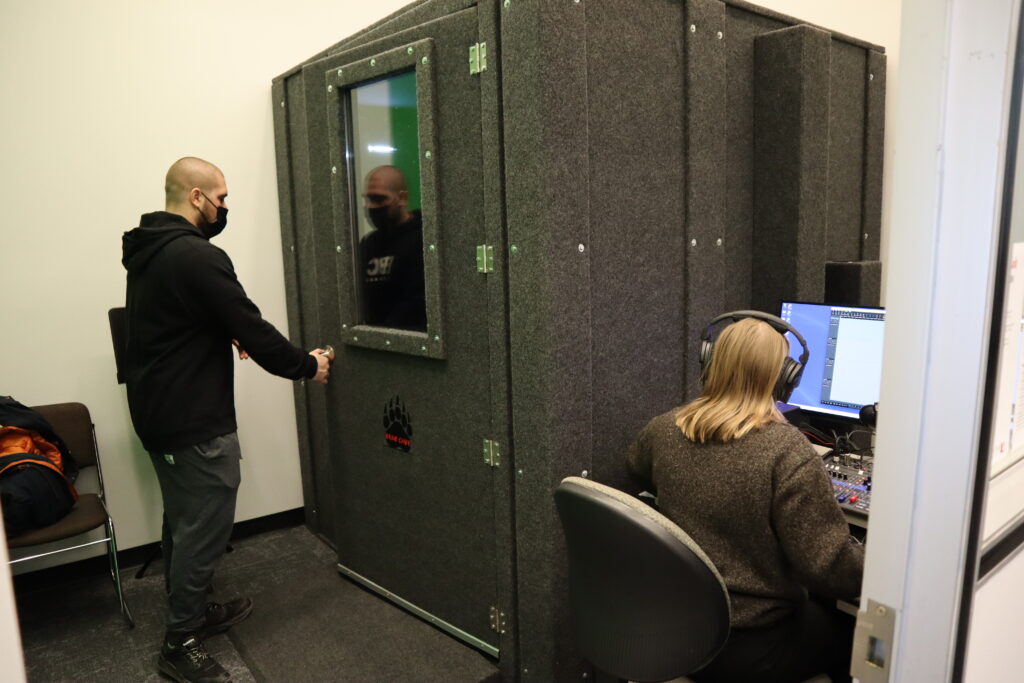
A new Media Creation Lab in the Scott Library provides students and faculty with access to new teaching and hands-on learning opportunities that span across disciplines.
From creating a 3D model of a structure, a virtual version of a city, to creating a podcast to teach or complement a project, York University Libraries’ new Media Creation Lab in Scott Library offers new ways for students, faculty and instructors to learn and teach. With the transition back to campus and almost two years of hybrid and online learning at York University, the new lab officially opened its doors this month, offering tools to any creator wanting to stretch their skills, engage and experiment with new media production technologies.
The creation of this space by York University Libraries speaks to the 21st-century academic library as a site of knowledge production and creation, according to Digital Scholarship Librarian at the York University Libraries Kris Joseph.
“The library is often seen as a place of consumption where you take out books, but students have always been creating in libraries,” says Joseph. “They take out books because they want to write a paper, for example. Now students are creating other types of media. Here at the York University’s Media Creation Lab, we facilitate the discovery and the creation of knowledge using digital media. This is a place where knowledge is moved, consumed, repurposed and created.”
The Scott Library Media Creation Lab (MCL), a 1,700-square-foot lab, offers students, faculty and researchers access to high-end audio and video recording equipment, an audio-visual media creation space, dedicated virtual reality (VR) spaces, a sound-isolated podcasting booth, portable virtual reality headsets and workstations for hands-on digital media production work. It allows users to produce podcasts, virtual reality projects, music recordings and other creative multimedia outputs.

“One of the things you can do in our VR Rooms is motion capture: record a body in motion and then use that data to create an animation or a performance piece for a class. The computers in the MCL have tools to create 3D environments that bring projects to life,” says Joseph.
One of the goals of the lab is to facilitate experiential education (EE) in partnership with undergraduate and graduate degree programs across the Keele Campus and at York University in general. Joseph says the possibilities are endless.
“Imagine for example in a history or archaeology course. Instead of talking or writing about a historic building, you can build a 3D model of it and then instead of doing a presentation, you can take your class on a VR tour of your building in a digital city,” says Joseph.
The lab is part of York University Libraries’ Digital Scholarship Centre, which is recognized for its leadership and innovation through equity, sustainability and responsible citizenship.
“As part of the new Digital Scholarship Centre, the Media Creation Lab supports consultation services for all students and faculty that coalesces the Libraries’ expertise in digital fluency. This includes content expertise to data visualization to publishing expertise backed by a suite of publishing infrastructure and tools to enhance assignment production, teaching materials, scholarship and student work,” says York University’s Dean of Libraries Joy Kirchner. “Our experts are on hand to help our entire community engage with their material in digitally enhanced collaborative spaces.”
The MCL provides equitable access to space, equipment and resources for students and faculty who are creating multimedia as part of learning, research and teaching. In February, the lab converted its pop-up virtual reality space into two dedicated virtual reality rooms and installed an audio recording booth from Bear Cave Silent Booths. With equipment targeted for both remote and in-house use, the lab will support the creation of video interviews and tutorials, student presentations, podcasts, digital storytelling, short films, virtual tours, lectures and more. The lab will also provide hands-on library staff assistance with using the equipment and will hold instructional workshops to help users better understand all the things they can accomplish with using the equipment.

“The Libraries conducted an extensive research study of digital scholarship needs at York University and we are innovating in response to what we’ve learned,” says Andrea Kosavic, associate dean, digital engagement and strategy in the Office of the Dean of Libraries. “As an example, we heard about a faculty member seeking to integrate VR in a classroom setting with just a single headset. We’ve directly addressed this challenge, collaborating with faculty to bring groups of students into the libraries for VR experiences and have created a lending library for media equipment. We are here to democratize access to media creation for everyone at York University.”
You don’t have to be an expert or even know how to create a podcast, 3D model or use VR – the Digital Scholarship Centre welcomes beginners. Co-curricular and extracurricular workshop materials, co-developed with the Glendon Digital Media Lab (GDML), will help orient students and faculty to the space and can easily be integrated into course assignments or project designs. Like its Glendon counterpart, the space can also serve as home to a student club dedicated to media creation. The lab will also have workshops available to help users learn about the equipment they want to use.
“We’re working now on getting equipment for our flexible studio space, which will be great for hosting workshops on media creation, and for doing everything from object photography to video shoots and VR exhibitions,” adds Joseph. “That’s our exciting next step.”
For reservations, visit the Media Creation Lab.
